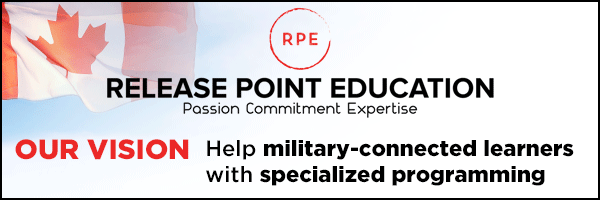The Government of Canada has a responsibility to ensure that all Canadians can learn in the official language of their choice. To achieve this, the education continuum, from preschool to post-secondary, plays an essential role. Supporting and encouraging official-language minority education and second official-language instruction is a government priority, as this learning fosters bilingualism and brings us together.
That is why on August 11 the Honourable Mélanie Joly, Minister of Economic Development and Official Languages, demonstrated the importance of supporting projects that promote post-secondary education by announcing $121.3 million in funding over three years, starting in 2021-2022, to support projects that will boost institutional capacity to provide high-quality post-secondary minority-language education, maintain access to available programs, promote collaboration among institutions, and address urgent needs to help stabilize the post-secondary minority-language sector.
In addition to this investment, the Government of Canada has provided more than $80 million to the provinces and territories in the past year to support initiatives across the country, including at Simon Fraser University, Collège Mathieu, Collège nordique francophone, Université de Moncton and Collège de l'Île. These institutions have received funding to support minority-language education, immersion programs and initiatives to encourage second-official-language teachers to pursue their professional development, including at the post-secondary level.
The announcement follows the introduction of a bill to modernize and strengthen the Official Languages Act and its related instruments. The bill recognizes the importance of Canadians having access to learn their second official language and reaffirms the Government of Canada's commitment to improving minority-language learning opportunities for Canadians throughout their lives, from early childhood to post-secondary education.
All of these measures are important, because post-secondary institutions are essential to ensure the vitality of official-language minority communities in Canada, and to allow students to grow and develop in a country that promotes both official languages. The federal government will continue to support official-language minority communities and all those who seek to have their language rights respected.
Quotes
"Our government has a responsibility to promote and protect our two official languages, which are woven into the fabric of our country. This investment is critical in supporting learning in two official languages throughout a student's school career, which is so important in building the bilingual Canada of tomorrow and ensuring the vitality of official-language minority communities."
The Honourable Mélanie Joly, Minister of Economic Development and Official Languages
Quick facts
-
According to Statistics Canada's 2016 Census, French-speaking communities outside Quebec represent 3.8 percent of the population, and bilingualism in English-speakers outside Quebec stands at 6.8 percent. According to projections for 2036, the percentage of French-speakers outside Québec could drop to 3 percent and the national bilingualism rate would increase among French-speakers in Quebec only.
-
According to Statistics Canada, the number of students enrolled in immersion programs increased by 47.8 percent from 2006-2007 to 2016-2017, while the number of students enrolled in French-language schools in minority settings increased by 14.3 percent.
-
The Action Plan for Official Languages includes an investment of $2.7 billion over five years, including $500 million in new funding to support official-language minority communities and to promote bilingualism across the country.
-
The federal government invests $235 million each year through the Protocol and bilateral agreements: approximately $149 million for minority-language education and $86 million for second-language education. Federal support is conditional on an equivalent or greater provincial/territorial contribution.
-
On June 15, Minister Joly, supported by the Honourable Jean-Yves Duclos, President of the Treasury Board, and the Honourable David Lametti, Minister of Justice and Attorney General of Canada, introduced Bill C-32 to achieve substantive equality of English and French and to strengthen the Official Languages Act. The bill takes into account the changes in Canadian society in order to ensure a bright future for our two official languages.
-
Only for this call for proposals, the Government of Canada will allow flexibility in the cost-sharing approach by funding up to 95 percent of eligible expenditures in 2021-2022; up to 75 percent in 2022-2023; and up to 50 percent in 2023-2024.
Associated links
- English and French: Towards a substantive equality of official languages in Canada
- Introduction of the bill Modernizing and Strengthening the Official Languages Act
- Action Plan for Official Languages - 2018-2023: Investing in Our Future
- Official Languages Support Programs: Teacher Recruitment and Retention Strategy in French Immersion and French Second-Language Programs











